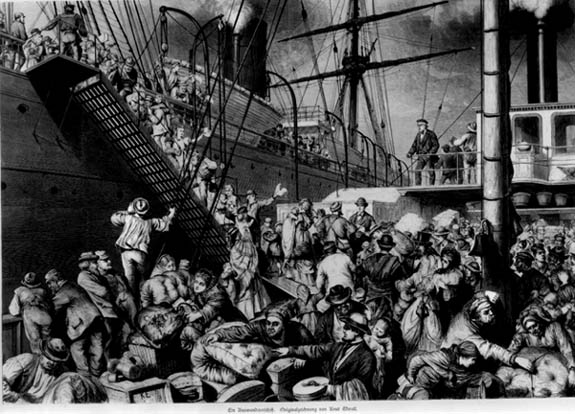
The flood of foreign labor pouring into the U.S., the European Union and other hospitable environs has brought political strains. In the U.S., President George W. Bush and Senator Edward M. Kennedy failed to win passage of an immigration reform bill that the President viewed as legacy legislation. In Europe, France’s new President, Nicolas Sarkozy, has been busy promising to get tough on immigrants and erecting roadblocks to Turkey’s bid for European Union membership.
These are only the latest shots in a long and ultimately futile debate about immigration policy. There is little chance of stemming migrant inflows, as long as the countries supplying immigrants embrace policies that effectively mandate labor dumping.
To understand labor dumping, look at one of its pioneers, Yugoslavia. After Marshal Josef Tito broke ranks with Moscow in 1948, Yugoslavia rejected notions of Soviet-style central planning and created its own brand of socialism. The Yugoslav model mandated that resources be allocated by worker-managers instead of central planners. This decentralized socialist setup was supposed to mimic markets, but without capitalists, it was doomed. Worker-managers viewed additions to the labor force as competitors for their slice of the pie. Consequently, they hung out “no vacancy” signs and wouldn’t hire new employees.
Opening Yugoslav borders—at least by communist standards— provided Tito with the means to dump surplus labor and mask flaws in the paradise of worker-managed firms. Tito’s broom worked very well. At its peak in the early 1970s it had swept 11% of the Yugoslav labor force into western Europe, and those workers sent home hard-money remittances that amounted to 30% of Yugoslavia’s exports.
Today Mexico is the world’s largest labor dumper and the source of much of the contentious U.S. immigration reform debate. Surprisingly, the political combatants on both sides of the debate fail to mention the source of the problem: Mexico’s statist economy. Like Yugoslavia, Mexico can’t produce enough jobs. According to the World Bank’s Doing Business 2007 report, Mexico’s labor market ranks 108th out of 175 countries in terms of the ease of hiring and firing workers and labor-market flexibility.
Rather than modernize the economy, Mexico’s politicians use Tito’s broom. Mexico’s 47 consulates in the U.S., more than any other country has, facilitate the sweeping by issuing passports and offering assistance when Mexican immigrants run into trouble. Thus 30% of Mexico’s labor force is working in the U.S., and in 2006 they sent home $23 billion, 12% of Mexico’s exports.
Turkey has a similar story. Burdensome laws and regulations put Turkey’s labor market 146th on the ranking from Doing Business 2007. Adding to the labor market’s regulatory burdens is the tax system. According to the Organization for Economic Cooperation & Development, in Paris, the tax wedge—the difference between labor costs to the employer and an employee’s takehome pay—is 42.8% for a family with two children and one working parent. This is the largest wedge in the OECD, 15.3 percentage points higher than the OECD average.
Turkey has swept 5.5% of its labor force into western Europe. Employment in the formal sector— on the official labor rolls— of the Turkish economy accounts for only 22% of total employment. Others who are lucky enough to find work in Turkey toil in the relatively unproductive informal or agricultural sectors of the economy, leaving 11% unemployed.
Poland is another labor dumper, with 7.6% of its labor force at work in foreign countries. Poland’s overregulated economy and overtaxed labor market (the tax wedge is 42.2%) can’t produce enough jobs. Even with labor dumping the jobless rate is 13%.
In Indonesia, says the Doing Business 2007 report, firing a worker costs the employer 108 weeks of wages, three times the OECD average. As a result, Indonesian companies are extremely reluctant to make legal use of the country’s labor supply, forcing an estimated 70% of the labor force to work in the informal sector of the economy and 10.3% to remain unemployed.
As in Mexico, Turkey and Poland, politicians in Indonesia mindlessly favor the same policy: the broom. Indonesian Labor Minister Erman Suparno estimated that there were more than 3 million Indonesians legally working overseas at the end of 2006, with at least another million doing so illegally. In addition to enforcing our laws, we must encourage foreign governments to respect their workers and reform their labor markets.
Author Steve H. Hanke

0 responses on "Labor Dumping"